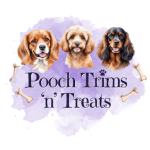10 best rawhide alternatives for your dog
What is Rawhide?
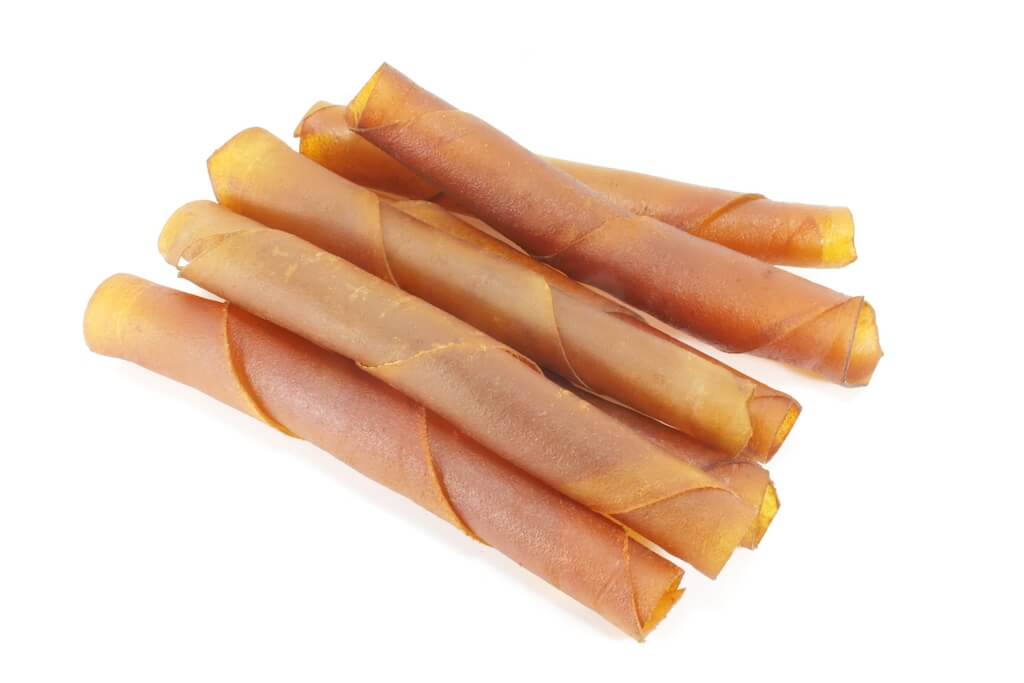
Rawhide is a versatile and durable material that has been used for centuries in many different applications. It is made from the inner hide of cattle, which is split into layers. The top layer, known as the grain layer, is then shaved off to create thin, flexible sheets of rawhide. This rawhide can then be cut into strips.
Rawhide chews are a popular treat for dogs, but are they safe? The answer is not straightforward. While rawhide may seem like a harmless dog chew toy, it can actually pose several risks to your furry friend.
One of the main concerns with rawhide is that it is not easily digestible. This means that if your dog swallows large chunks of rawhide, it can cause blockages in their digestive system. These blockages can be life-threatening and require emergency surgery to remove.
In addition to the risk of blockages, rawhide chews can also be a choking hazard. If your dog bites off a large piece of rawhide and tries to swallow it whole, they may choke on the piece and struggle to breathe.
Another issue with feeding your dog a rawhide dog chew is that rawhide is often treated with chemicals during processing. These chemicals can be harmful to your dog if ingested regularly over time.
So, while rawhide may seem like a fun treat for your pup, it’s important to weigh the risks before giving them one. There are safer rawhide alternatives available such as bully sticks or dental chews that are easier to digest and less likely to cause blockages or choking hazards.
How is Rawhide made?

The strips of Rawhide are formed into shapes like bones, twists and rolls. It is then tanned until it has become harder and more durable than leather. After tanning, the rawhide may be treated with chemicals to increase its resistance to decay and its water-resistance properties. It may also be bleached or dyed for aesthetic purposes before being sold as a chewable treat for pets.
Does Rawhide have any benefits for dogs?
Chewing on rawhide helps strengthen jaw muscles and provides mental stimulation as well as helping to relieve boredom or stress. It also encourages saliva production which can help reduce plaque build-up on teeth, freshen your dog’s breath and support healthy gums by removing food particles stuck between the teeth.
However, Rawhide chews also present a choking and intestinal obstruction hazard. As dogs chew on them, small pieces can break off and become lodged in their throats, potentially leading to a life-threatening situation. Ingestion of large pieces of rawhide can also lead to blockages in the intestines which require surgery to remove. Natural dental chews such as bully sticks are a far safer alternative.
Is Rawhide safe for dogs?
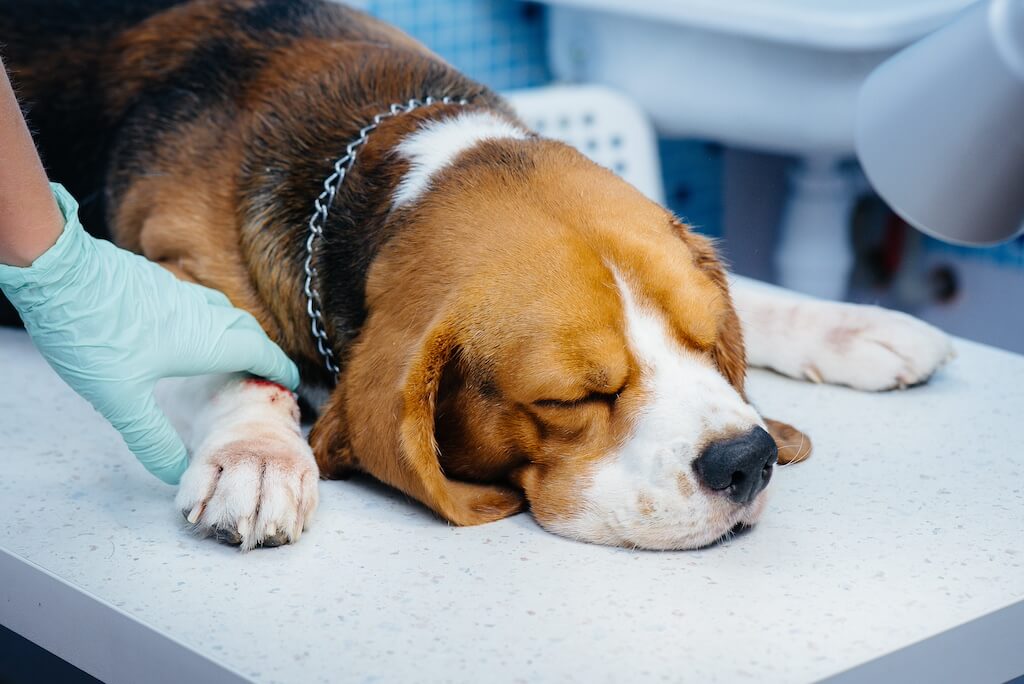
There are significant risks associated with rawhide chews that pet parents should be aware of before giving them to their canine companion.
Rawhide is a type of processed hide from cows or other animals that has been dried and treated with chemicals for preservation. The problem is that dogs often swallow these large pieces of rawhide whole and the chewed up pieces are too big for them to digest, potentially leading to serious gastrointestinal issues. As the rawhide passes through their intestines, it can become lodged in their stomachs or intestines, creating an obstruction.
This can lead to a host of health problems including abdominal pain, vomiting, diarrhoea, dehydration and loss of appetite. In severe cases, the obstruction may cause infection or blockage of other organs and can even be fatal if not addressed quickly by a veterinarian.
In addition to the physical danger posed by rawhide consumption, the chemicals used to preserve it can also present risks. Many common preservatives contain artificial colours and flavours that could be harmful if ingested by your dog. Additionally, some manufacturers add sugar or sugar substitutes such as xylitol which are toxic to dogs and could lead to rapid onset hypoglycaemia or liver failure if eaten in large quantities.
For these reasons, it’s best to avoid giving your dog any type of processed hide treat. There are plenty of more nutritious options available such as bully sticks, chicken jerky or dehydrated vegetables that provide positive nutrition without posing potential health risks. If you do decide to give your dog rawhide chew toys, make sure they are supervised while playing with them so that they don’t attempt to swallow large pieces whole and keep an eye out for any signs of distress from ingestion.
Why is Rawhide bad for dogs?
Rawhide dog chews are popular among our furry friends, but during their preparation rawhides go through hydrogen peroxide or bleach baths for sanitisation and whitening purposes – not necessarily because it benefits the pet! Once cleansed and flattened, they can be cut into many shapes that may even include artificial flavouring colours for extra appeal. Does this sound like an appropriate snack choice for your four-legged friend – especially when there are so many other completely natural and delicious alternatives?
Can Puppies Have Rawhide dog chews?
Rawhide is bad for dogs, but even more dangerous for puppies.
Chemicals used in the manufacturing process are potentially toxic; these include formaldehyde, bleach and chromium salts which have been linked to cancer in animals as well as other health problems such as kidney damage and liver failure. Even more concerning is that some rawhides are treated with antibiotics which could create antibiotic-resistant bacteria if ingested.
Furthermore, salmonella has been found on some rawhides – meaning you’re exposing your pup to potential food poisoning if they chow down on this type of chew treat. And because the hides are usually processed outside of the UK where inspection standards may be lower (or non-existent), it’s often impossible to know what kind of chemicals were used in their production – making them a dangerous snack for your puppy.
Overall, feeding rawhide dog chews to puppies is not advisable due to the potential health risks associated with them. It’s much safer for your pup’s health if you opt for natural rawhide alternatives specifically designed for dogs – these will be much easier for them to digest and won’t contain any harmful toxins or bacteria that could make them sick.
What Are Natural Rawhide Alternatives for Dogs?
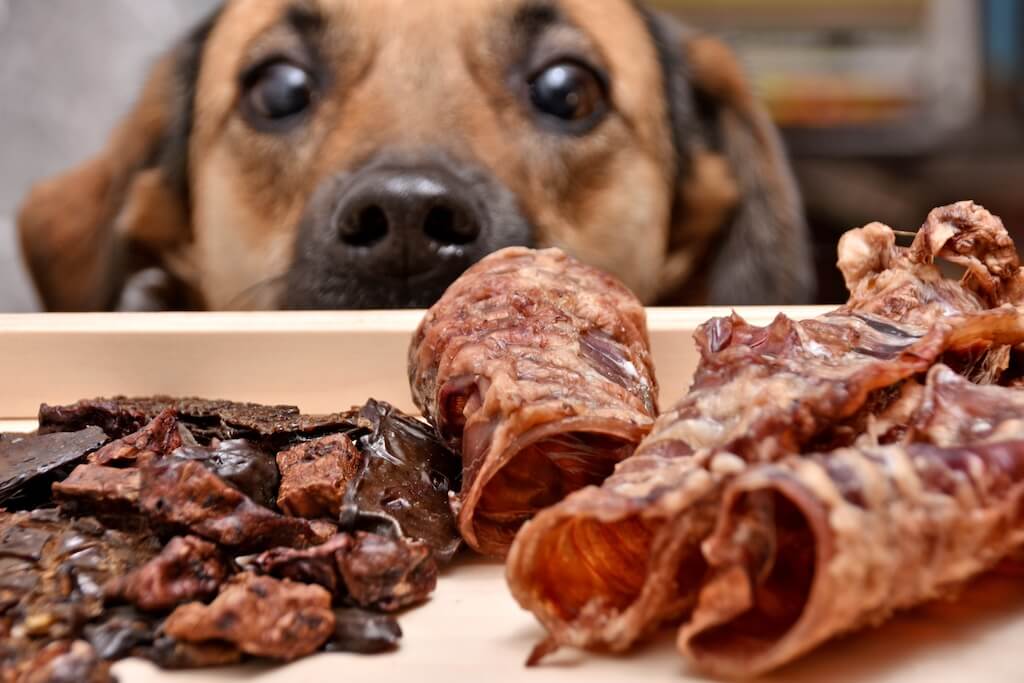
Natural alternatives to rawhide chews for dogs are plentiful and can provide a safer and healthier way for your dog to stay occupied. For example, bully sticks are a popular choice made from beef which is slowly roasted to maintain their natural flavour. This protein-packed treat offers hours of chewing fun while helping keep your pup’s teeth clean. An additional benefit of bully sticks is they digest more easily than rawhide, so there’s less risk of an upset stomach or blockage.
Other natural chew options include buffalo horns, deer antlers, and Himalayan Yak Chews. Buffalo horns provide a unique texture that dogs love to gnaw on as well as help with dental hygiene as it scrapes away plaque and tartar from the dog’s teeth. Deer antlers provide similar benefits but can be more durable and last longer than regular chew bones. Himalayan Yak Chews are made from the milk solids of a yak in Nepal and offer a crunchy texture that dogs enjoy all while staying away from chemicals found in some traditional rawhide treats. The only addition is lime juice to set the milk.
In addition, there are also many edible chews available on the market today that can provide long-lasting satisfaction for your pup while providing essential nutrients such as vitamins, minerals, fatty acids, antioxidants, and proteins. These treats can range from dried fruits or veggies like sweet potatoes or carrots to grain and gluten free biscuits, animal skin and even freeze-dried meats like salmon or chicken. Whichever type you choose, make sure you supervise your pup while they are chewing and always provide plenty of fresh water as they’ll be thirsty when they’re finished.
10 of the Best Natural Treats
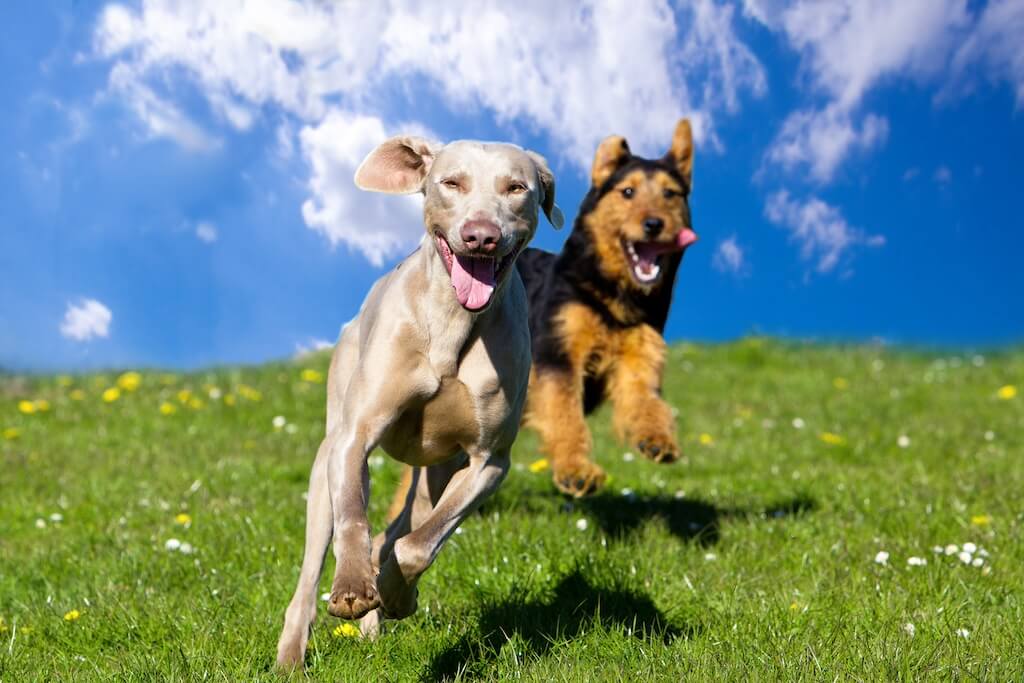
-
- Bully stick
- Elk antlers
- Chicken feet
- Ostrich bones
- Rabbit ears
- Beef muscle
- Buffalo skin
- Buffalo horn
- Camel skin
- Beef tails
Conclusion
With the wide variety of natural low fat healthy dog chews and treats available for your pup, why would you take the risk and feed them something chemically treated and potentially dangerous like a rawhide chew?
Pick a dog chew which is a safe natural alternative to rawhide. Your pup will thank you for it and you’ll have fewer trips to the vet!
